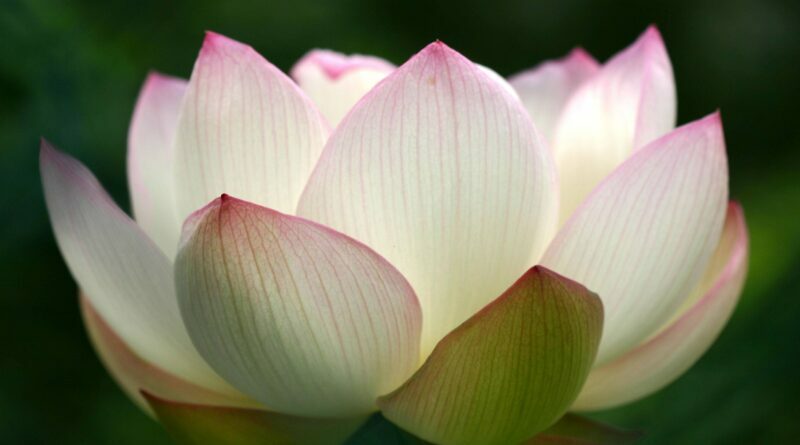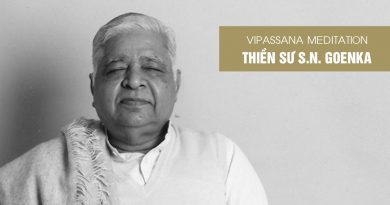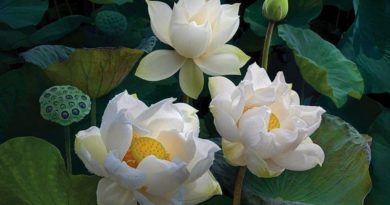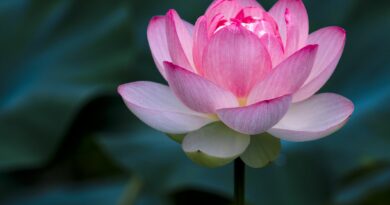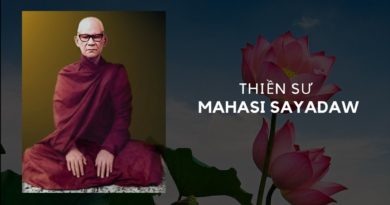Come People Of The World
MAIN CONTENT
Translations of selected Hindi couplets.
-By S. N. Goenka
Preface
This booklet presents a collection of Hindi couplets (dohas) chanted by Shri S.N. Goenka in his 10-day Vipassana courses. These have been a source of great inspiration to his students for many years. They have now been transcribed in Roman script and translated in English for the benefit of English speaking students all over the world. The doha is a favourite Indian poetic form similar to the gathas (verses) often used by the Buddha, and it remains, even today, a strong part of Indian culture. The dohas enjoy a prestigious position in Indian literature since, down through time, the sages have used these as a vehicle of their noblest thoughts. These dohas pulsate with Dhamma vibrations. Although inspiring, these dohas by no means, form a part of meditation. For this one has to turn to one’s own experience, observing the phenomena of arising and passing away within the framework of one’s own body from time to time, from moment to moment. We feel very happy to place these pages in the hands of Vipassana students and all those interested in walking on the path of Dhamma; the Path of peace, happiness and full liberation. The Editors
Hindi followed by English Translations:
Day 1 Āo logoṅ jagata ke, caleṅ Dharama ke pantha. Isa patha calate satpuruśha, isa patha calate santa. Dharma pantha hī śhānti patha, Dharma pantha sukha pantha. Jisane pāyā Dharma patha, maṅgala milā ananta. Āo mānava-mānavī, caleṅ Dharama ke pantha. Kadama-kadama calate hue, kareṅ dukhoṅ kā anta. Sāṅsa dekhate dekhate, citta avicala ho jāya. Avicala citta nirmala bane, sahaja mukta ho jāya. Dharma Dharma to saba kaheṅ, Dharma na samajhe koya. Nirmala mana kā ācaraṇa, śhuddha Dharama hai soya. Dharma na Hindū Bauddha hai, Sikkha na Muslima Jaina. Dharma citta ki śhuddhatā, Dharma śhānti sukha caina.
Day 1 Come, people of the world! Let us walk the path of Dhamma. On this path walk holy ones, on this path walk saints. The path of Dhamma is the path of peace, the path of Dhamma is the path of happiness. Whoever attains the path of Dhamma gains endless happiness. Come, men and women! Let us walk the path of Dhamma. Walking step by step, let us make an end of suffering. Observing breath after breath, the mind becomes still. Unwavering, the mind becomes pure and naturally finds liberation. Everyone talks about Dhamma but no one understands it. Practising purity of mind— this is true Dhamma. Dhamma is not Hindu or Buddhist, not Sikh, Muslim, or Jain; Dhamma is purity of heart, peace, happiness, serenity.
Day 2 Kśhaṇa kśhaṇa kśhaṇa kśhaṇa bītate, jīvana bītā jāya. Kśhaṇa kśhaṇa kā upayoga kara, bītā kśhaṇa nā āya. Dharma nā mithyā rūḍhiyāṅ, Dharma nā mithyācāra. Dharma nā mithyā kalpanā, Dharma satya kā sāra. Sāṅsa dekhate dekhate, satya pragaṭatā jāya. Satya dekhate dekhate, parama satya dikha jāya. Sampradāya nā Dharma hai, Dharma nā bane divāra. Dharma sikhāye ekatā, Dharma sikhāye pyāra. Āte jāte sāṅsa para, rahe nirantara dhyāna. Karamoṅ ke bandhana kaṭeṅ, hoya parama kalyāṇa. Jaba jaba antara jagata meṅ, jāge citta vikāra. Maiṅ bhī vyākula ho uṭhūṅ, vikala karūṅ saṅsāra. Maiṅ bhī vyākula nā banūṅ, jagata vikala nā hoya. Jīvana jīne kī kalā, śhuddha Dharama hai soya.
Day 2 Moment after moment after moment, life keeps slipping by. Make use of every moment; the moment past will never come again. Dhamma is not blind tradition, Dhamma is not wrong action, Dhamma is not false imaginings; Dhamma is the essence of truth. As you observe breath after breath the truth reveals itself. Observing truth after truth you come to Ultimate Truth. Sectarianism is not Dhamma; Dhamma raises no walls. Dhamma teaches oneness, Dhamma teaches love. In-breath, out-breath— if you keep unbroken awareness, the knots of kamma will be sundered, leading to the highest welfare. Whenever in the inner world mental defilement arise, I become agitated and make the outer world agitated. May I and may the world be free from agitation. This is the art of living, this is pure Dhamma.
Day 3 Kāyika karma sudhāra le, vācika karma sudhāra. Mana ke karma sudhāra le, yahi Dharma kā sāra. Para-sevā hī puṇya hai, para-pīḍana hī pāpa. Puṇya kiye sukha hī mile, pāpa kiye santāpa. Sadācaraṇa hī Dharma hai, durācaraṇa hī pāpa. Sadācaraṇa sukha hī jage, durācaraṇa dukha tāpa. Dekho apane āpako, samajho apanā āpa. Apane ko jāne binā, miṭe na bhava-santāpa. Āṭha aṅga kā Dharama patha, diyā Buddha Bhagavāna. Kadama-kadama calate hue, mile mokśha nirvāṇa. Pragyā śhīla samādhi hī, śhuddha Dharma kā sāra. Kāyā vāṇī citta ke, sudhareṅ saba vyavahāra. Kudarata kā kānūna hai, saba para lāgū hoya. Mailā mana vyākula rahe, nirmala sukhiyā hoya.
Day 3 Transform your deeds of body, transform your deeds of speech, transform your mental deeds— this is the essence of Dhamma. Virtue lies in serving others; harming others is sin. Virtuous deeds bring happiness; sin causes torment. Right action is Dhamma, wrong action is sin. Right action creates happiness, wrong action—suffering and torment. Observe yourself. Understand yourself. Unless you know yourself, you cannot end the torments of existence. The Eightfold Path of Dhamma was shown by the Buddha, the Exalted One. Following it step by step, you will reach liberation, nibbāna. Sīla, samādhi and paññā— this is the essence of pure Dhamma. Transforming all actions of body, speech, and mind. This is the law of nature, which applies to one and all; a defiled mind remains agitated, an unstained mind is happy.
Day 4 Vāṇī to vaśha meṅ bhalī, vaśha meṅ bhalā śharīra. Para jo mana vaśha meṅ kare, vahī śhūra vaha vīra. Śhīla samādhi gyāna hī, maṅgala kā bhanḍāra. Saba sukha sādhanahāra hai, saba dukha meṭana-hāra. Śhīla dharama pālana bhalā, samyak bhalī samādhi. Pragyā to jāgrata bhalī, dūra kare bhava vyādhi. Śhīla-vāna ke dhyāna se, pragyā jāgrata hoya. Antarmana kī granthiyāṅ, sahaja vimocita hoṅya. Pragyā jāge balavatī, aṅga-aṅga rama jāya. Aṇu-aṇu cetana ho uṭhe, cita nirmala ho jāya. Śhīla-samādhi-gyāna kī, bahī triveṇī dhāra. Þubakī māre so tire, ho bhava-sāgara pāra.
Day 4 Good to have mastery of speech, good to have physical mastery, but one who is master of his mind is a warrior of real courage. Sīla, samādhi and paññā— a treasury of well-being, conferring all happiness, removing all misery. Good to practise morality, good is right concentration, good is the awakening of insight which cures the ills of life. When a person of morality concentrates, insight awakens. The knots in the depths of the mind are easily untied. May wisdom arise, mighty in power, and spread throughout your being, enlivening every atom and purifying the mind. Sīla, samādhi and paññā— three streams have joined and flow together. By plunging into their confluence one crosses the ocean of suffering.
Day 5 Gaṅgā Yamunā Sarasvatī, śhīla samādhi gyāna. Tīnoṅ kā saṅgama huā, pragaṭe pada nirvāṇa. Mana ke karama sudhāra le, mana hī pramukha pradhāna. Kāyika vācika karma to, mana kī hī santāna. Jaisī citta kī cetanā, vaisā hī phala hoya. Durmana kā phala dukhada hī, sukhada sumana kā hoya. Mana hī durjana, mana sujana, mana bairī mana mīta. Mana sudhare saba sudhari haiṅ, kara mana parama punīta.
Day 5 The true Ganges, Jamunā and Sarasvatī are sīla, samādhi and paññā. Where these three streams converge nibbāna manifests. Correct your mental actions; mind is first and foremost. Deeds of body and speech are offspring of the mind. As is the volition of the mind, such will be the fruit; an impure mind yields misery, a pure mind gives happiness. The mind can be wicked or gentle, the mind can be a foe or friend. If the mind is transformed, all is transformed, so make your mind truly pure.
Day 6 Mana hī durjana mana sujana, mana bairī mana mīta. Jīvana chāe śhānti sukha, jaba mana hoya punīta. Tapa re tapa re mānavī, tape hī nirmala hoya. Subaraṇa bhaṭṭhī meṅ tape, tapa tapa kundana hoya. Tīna bāta bandhana bandheṅ, rāga dveśha abhimāna. Tīna bāta bandhana khuleṅ, śhīla samādhi gyāna. Ahaṅkāra hī janma kā, jarā mrūityu kā mūla. Ahaṅkāra miṭe binā, miṭe na bhava-bhaya śhūla.
Day 6 The mind can be wicked or gentle, the mind can be a foe or friend. Peace and happiness spread in life when the mind becomes pure. Strive ardently, oh man, and burn! Purity comes from burning away the dross. Gold must pass through a crucible in order to be refined. Threefold is our bondage; craving, aversion, pride. Threefold is the way to break our bonds; Sīla, samādhi and paññā. Self-centeredness—this is the root of birth, decay, and death. Unless egoism is removed, the torment and fear of becoming will not end.
Day 7 Śhīla Dharama kī nīṅva hai, dhyāna Dharama kī bhīṅta. Pragyā chata hai Dharama kī, maṅgala bhavana punīta. Bhogata bhogata bhogate, bandhana bandhate jāṅya. Dekhata dekhata dekhate, bandhana khulate jāṅya. Jaba taka mana meṅ rāga hai, jaba taka mana meṅ dveśha. Taba taka dukha hī dukha hai, kaṭeṅ na mana ke kleśha.
Day 7 Sīla is the foundation of Dhamma, samādhi forms the walls, paññā is the roof— the auspicious dwelling of happiness. Rolling and rolling in sense pleasures we keep tying knots. Observing, observing, observing we open all the knots. As long as there is craving in the mind, as long as in the mind is aversion, there will be suffering, only suffering; the mind cannot be purged of affliction.
Day 8 Dharama hamārā iśhvara, Dharama hamārā nātha. Sadā surakśhita hī raheṅ, Dharama sadā ho sātha. Jitanā gaharā rāga hai, utanā gaharā dveśha. Jitanā gaharā dveśha hai, utane gahare kleśha. Rāga sadṛiśha nā roga hai, dveśha sadṛiśha nā dosha. Moha sadṛiśha nā mūḍhatā, Dharma sadṛiśha nā hośha.
Day 8 Dhamma is our master, Dhamma is our lord. We are always protected if Dhamma is always with us. Deeper the craving, deeper is the aversion. Deeper the aversion, deeper is the affliction. There is no disease like craving, there is no frailty like aversion. There is no folly like ignorance, there is no sanity like Dhamma.
Day 9 Dharama hamārā bandhu hai, sakhā sahāyaka mīta. Caleṅ Dharama kī rīta hī, rahe Dharama se prīta. Sukha āye nāce nahīṅ, dukha āye nahīṅ roya. Donoṅ meṅ samatā rahe, to hī maṅgala hoya. Māṅava kā jīvana milā, Dharma milā anamola. Aba śhraddhā se yatana se, mana kī gāṅṭheṅ khola.
Day 9 Dhamma is our brother, companion, helpmate, friend. Let us walk to the measure of Dhamma, giving our love to Dhamma. Not dancing when pleasure comes, not wailing when in pain, keeping equilibrium with both— this is real happiness. Achieved—this human life; achieved—the priceless Dhamma. Now with faith and effort untie the bonds of the mind!
Day 10 Isa dukhiyāre jagata meṅ, sukhiyā dikhe na koya. Śhuddha Dharama jaga meṅ jage, jana jana sukhiyā hoya. Dhanyabhāga sābuna milī, milā Dharama kā nīra. Āo dhoyeṅ svayam hī, mana ke maile cīra. Maṅgala maṅgala Dharma kā, maṅgala hī phala hoya. Antara kī gāṅṭheṅ khuleṅ, mānasa nirmala hoya. Antara meṅ ḍubakī lagī, ḍūba gae saba aṅga. Dharama raṅga aisā caḍhā, caḍhe na dūjā raṅga. Dveśha aura durbhāva kā, rahe na nāma niśhāna. Sneha aura sadbhāva se, bhara leṅ tana mana prāṇa. Mana-mānasa meṅ pyāra hī, tarala taraṅgita hoya. Roma-roma se dhvani uṭhe, sabakā maṅgala hoya. Dharma-vihārī puruśha hoṅ, Dharmacāriṇī nāra. Dharmavanta santāna hoṅ, hoya sukhī parivāra.
Day 10 In this wretched world I see no one who is happy. May pure Dhamma arise in the world, bringing happiness to all. We are fortunate to have the soap and water of the Dhamma. Come now! We ourselves must wash the dirty linen of the mind. The blessed, blessed Dhamma bears auspicious fruit. Knots within are opened, the mind becomes stainless. By plunging deep within, the entire being has become so saturated with the colour of the Dhamma that no other colour can impinge. Of hatred and ill-will may not a trace remain. May love and goodwill fill body, mind, and life. May ripples of love spread through the pool of the mind. May every pore give forth the sound, May all beings be happy! May each man dwell in Dhamma, may each woman follow Dhamma, may the children be full of Dhamma, to make the family happy.
Day 11 Mere arjita puṇya meṅ, bhāga sabhī kā hoya. Isa maṅgalamaya Dharma kā, lābha sabhī ko hoya. Mere sukha meṅ śhānti meṅ, bhāga sabhī kā hoya. Isa maṅgalamaya Dharma kā, lābha sabhī ko hoya. Maiṅ karatā saba ko kśhamā, kareṅ mujhe saba koya. Mere to saba mitra haiṅ, bairī dikhe na koya. Namana kareṅ hama Dharama ko, Dharama kare kalyāṇa. Dharama sadā rakśha kare, Dharama baḍā balavāna. Namana kareṅ saba Dharama ko, Dharama kare kalyāna. Dharama sadā maṅgala kare, Dharama baḍā balavāna.
Day 11 May the merits I have acquired be shared by one and all. May this munificent Dhamma benefit one and all. May my happiness and peace be shared by one and all. May this munificent Dhamma benefit one and all. I pardon all, may all pardon me. All are my friends, I have no enemies. Let us pay respects to Dhamma! Dhamma confers welfare. Dhamma always protects us. Great is the power of Dhamma! May all pay respects to Dhamma! Dhamma confers welfare. Dhamma always brings happiness. Great is the power of Dhamma!
Source: https://www.vridhamma.org

